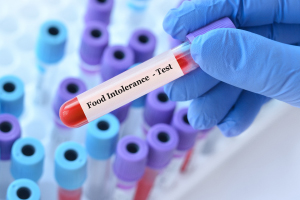

Feeling bloated, tired or just—off? Chronic inflammation might be the silent culprit behind those nagging symptoms. When it spreads throughout the body, chronic inflammation is more than just a short-term response to an injury. It can damage tissues, mess up normal bodily functions, and even lead to dangerous diseases like heart disease, diabetes, and inflammatory bowel disease (IBD). The good news? Your kitchen has few of the best things you can use to fight inflammation. Adding anti-inflammatory foods to your daily diet can help ease your symptoms, boost your immune system, and speed up the healing of your gut.
What is Inflammation, and Why Does It Matter?
When the body gets hurt or infected, it naturally reacts with inflammation. But when it lasts for a long time—because of a bad diet, worry, or environmental toxins—it can cause long-term health problems. If your gut is inflamed, you might feel bloated and tired, have stomach pain, or be sensitive to certain foods. Early intervention and healing depend on spotting these inflamed gut symptoms.
Top Anti-Inflammatory Foods to Add to Your Diet
Many anti-inflammatory foods are high in nutrients and can help your body heal from the inside out. These are some of the strongest:
1. Fatty Fish
Fish that are high in fat, like salmon, mackerel, and sardines, have a lot of omega-3 fatty acids. These chemicals help lower inflammation and the chance of getting long-term sicknesses. Omega-3s benefit any inflammatory bowel disease diet because they promote gut health.
2. Leafy Greens
Leafy greens like spinach, kale, and Swiss chard contain fibre and vitamins. These foods reduce inflammation markers, especially in the gut, helping the body detoxify.
3. Berries
Tiny but mighty! Anthocyanins are strong antioxidants that fight inflammation. Strawberries, blueberries, and raspberries all contain them. Berries are also good gut-healing foods because they help the gut walls heal.
4. Turmeric
Turmeric’s curcumin is a strong anti-inflammatory element. It has been shown to help people with IBD feel better and digest food better overall. Adding black pepper to turmeric will help your body absorb it better, hence achieving the tag of one of the best foods that reduce intestinal inflammation.
5. Yogurt and Fermented Foods
Yoghurt, kefir, kimchi, and cabbage contain large amounts of probiotics. These live bacteria help keep the gut bacteria in order and improve digestion. They are excellent foods that heal gut inflammation and strengthen your immune system.
6. Whole Grains and Legumes
Fibre-rich foods include oats, brown rice, quinoa, beans, and chickpeas. If you want to know how to heal your gut with food, these foods can help keep the good bacteria in your gut alive.
Foods to Avoid When Healing Your Gut
Avoid these foods when healing your gut because they can exacerbate inflammation, mess up the gut microbiota, and cause IBD flare-ups. Here’s a helpful list of foods to avoid with IBD or Inflammatory Bowel Disease:
- Processed meats (sausages, hot dogs)
- Fried foods
- Refined carbohydrates (white bread, pastries)
- Sugary drinks and sweets
- Artificial sweeteners
Read More: The Truth About Superfoods: An Ideal Diet to Attain Healthy Weight
Simple Diet Tips for Gut Health
Maintaining a healthy gut starts with the right food choices. Here are some simple diet tips to support digestion and reduce inflammation:
- Stay Hydrated: Water helps your body process food and eliminate waste.
- Eat the Rainbow: Include fruits and vegetables of all colours high in polyphenols.
- Pick Healthy Fats: Nuts, olive oil, and avocados are all great foods that help reduce inflammation.
- Limit Sugar and Alcohol: These things make the gut more permeable and cause inflammation.
- Cook Smart: Don’t fry your food. Instead, steam, bake, or sauté it.
Conclusion
If you want to reduce inflammation, making minor changes to your food over time can help. Avoid highly processed, inflammatory foods and focus on foods that reduce inflammation. A well-chosen group of anti-inflammatory foods can help you feel better whether you have IBD, are healing your gut after taking drugs, or are just trying to feel better. Your gut and the rest of your body will thank you in the long run.
Frequently Asked Questions Related to Anti Inflammatory Foods
Q2. What reduces inflammation?
Fat-rich fish like salmon, herring, mackerel, sardines, tuna, striped bass, and anchovies contain one kind of these powerful painkillers. Eat fish or take fish oil capsules for health.
Q3. Is banana anti-inflammatory?
Yes, bananas have mild anti-inflammatory effects, especially when they are ripe. Banana compounds reduce inflammation and promote immunity. They include antioxidants and vitamin B6.




